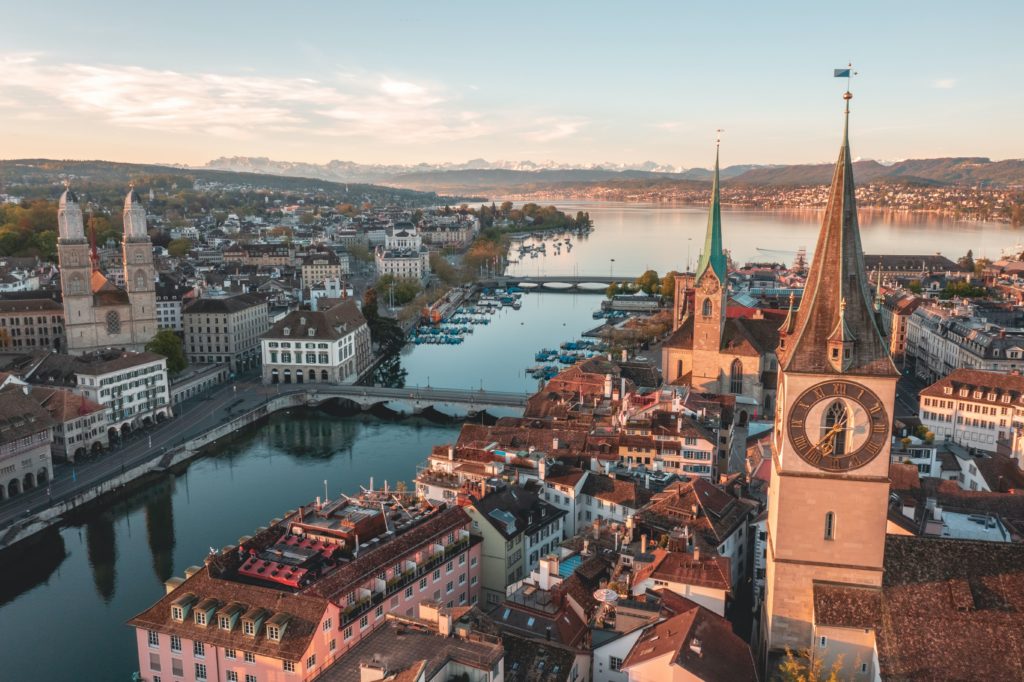Switzerland is a haven, both financially and politically. Low capital costs, a stable currency, strong purchasing power, moderate taxation, a federal state system, and economic and political stability guarantee a high level of security for investments in Switzerland. This is the reason why today many Indians are looking to buy a property in Switzerland.

Indians buying land in Switzerland
As Switzerland is a union of 26 Autonomous regions, each with its laws, parliament, administration, and judiciary, the process of buying land here is a little complicated. Switzerland has an image as a market for real estate that is confusing and heavily regulated.
There are limitations on where Indians can purchase at the domestic, provincial, and local levels. Residential real estate can be purchased by Indians in touristy areas only. You cannot purchase a house in Zurich, Geneva, Zug, or any other Swiss city unless you are a citizen. Since most resorts are located in tourist zones, Indians are permitted to purchase lodges and flats there. In Switzerland, international landowners are permitted to reside there for up to six months annually. Also, you cannot purchase an estate on a firm’s behalf.
Additionally, although it is not prohibited by law, Indian citizens find it very challenging to obtain a loan from a Swiss bank. Therefore, unless you can purchase without a loan, you should think about getting a loan from your bank. You must apply for a residency visa to stay, operate, or retire in the country, and once granted, the estates you can buy and the purchasing procedure may vary.
Process of purchasing Swiss real estate
The following are the steps to take when purchasing land or property in Switzerland.
Make a bid
You can make a bid on a property after conducting an online or agent-based search. After consulting specialists, make an offer that fits your budget. You can continue with the process of purchasing a property if your offer is approved.
Sign a booking contract
For new or renovated properties, you will almost always be requested to do so along with a small deposit. This is becoming more typical for resale homes as a show of goodwill. The builder or seller will sign the document, and the house won’t be advertised to other purchasers for a while as you get ready to apply for a loan and start the buying process.
Notary appointed
The transaction will be overseen by a Swiss registrar once you’ve signed the booking contract and secured funds. Typically, the broker who approves the deal appoints the registrar.
Applying for a foreigner purchase permit
The registrar will begin the process by gathering all the essential data, including the purchaser and seller’s personal information and important facts about the estate. The contract and the request for an Indian buying permission are both prepared by the notary.
The request for buying authorization will be submitted by the registrar, and this needs to be approved by the regional government officials. Only if you already possess another estate in the country or the asset does not adhere to the criteria would this be denied.
Certificate of sale completion
After obtaining the license, the deed of sale may be executed within 1 month. If you don’t want to be there in person, you can sign an attorney instead.
Registration and delivery
The Property Registry will then record the transaction. This will take a couple of weeks as well, but after the agreement has taken place, many sellers provide the keys. The sale isn’t finalized, though, until it’s recorded in the land register.
Cost of buying
The cost of purchasing a home in Switzerland is among the lowest in Europe and by far the lowest in the Alps.
In most Autonomous regions, the total acquisition charges range from 2.5% to 3.8%. With total buying expenses that are unusually close to 5%, Region Vaud stands out. The buyer is responsible for paying all expenses.


